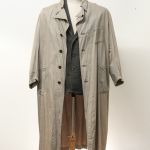
26 July – 31 August
After 1945, Ernst Lothar and Oscar Fritz Schuh dominated the drama department.

26 July – 31 August
After the regular TV programme started operating in Austria on six days a week starting at 8 pm as of January 1957, ORF decided in June 1958 for the first time to broadcast Festival events on television as well.
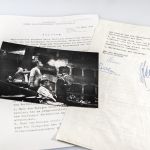
27 July – 31 August
The Festival’s Board of Directors had already resolved as early as December 1954 to fill the gap left by Furtwängler’s death and engage Herbert von Karajan. However, he cancelled his engagement in 1955.
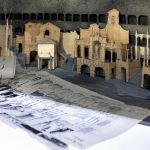
21 July – 30 August
The opera schedule in the anniversary year of 1956 was dedicated wholly to the genius loci Mozart: four revivals – including Don Giovanni – the takeover of Idomeneo from the Mozart Week and also a new production of Le nozze di Figaro formed a veritable show parade of the Mozart repertoire.
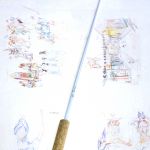
24 July – 30 August
Both the Salzburg Festival and the Vienna State Opera planned to include Don Giovanni and Fidelio in their 1955 schedules. Karl Böhm, director of the Vienna State Opera, threatened to stay away from the Festival should the schedules be the same.
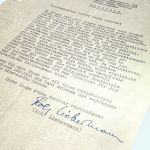
25 July – 30 August
As of 1954, Gottfried von Einem, as member of the arts council, was again chosen to make suggestions for the Salzburg Festival. He had already contrived to include the world première of Rolf Liebermann’s Penelope for 1954, whereupon Wilhelm Furtwängler expressed his displeasure, and the dispute flared up anew about programme planning and the renewal movement promoted by the team of von Einem/Schuh.
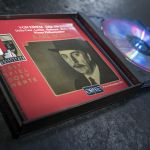
26 July – 31 August
After the uproar about the conferment of Austrian citizenship to Bertolt Brecht and the resulting expulsion of Gottfried von Einem from the Festival’s Board of Directors – he had supported Brecht until the very end – the composer was to be rehabilitated.

26 July – 31 August
The musical highlight of the 1952 Festival was the world première of Strauss’s opera Die Liebe der Danae on 14 August – eight years after the momentous dress rehearsal of 1944 – under Clemens Krauss.

27 July – 31 August
The year 1951 is noted as one of political scandal in the annals of the Festival. In the run-up to the first performance of Alban Berg’s Wozzeck at the Salzburg Festival, a politically motivated campaign was being organized against the opera, which caused ticket sales to slump.
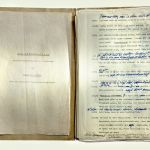
27 July – 31 August
Ernst Lothar, who as Theater & Music Officer exercised a major influence on the Salzburg Festival from summer 1946 on, resigned as cultural officer at the end of 1947. In 1948, he returned to the Salzburg Festival as member of the Board of Directors and endeavoured – with varying success – to ring in a new era for straight drama.
1950s
The economic boom in Western Europe led to the founding of many festivals. Aix-en-Provence, Glyndebourne and Edinburgh had been rivalling Salzburg ever since 1950; a year later, in 1951, the re-opening of the Bayreuth Festival hit the headlines. The Salzburg Festival endeavoured to reinforce and enhance its reputation with a dual strategy: on the one hand, it put the accent on the contemporary repertoire, on the other, it presented the classics in exemplary productions.
The Festival also broke ground in organization: on 12 July 1950, the National Council passed the law for the founding of a Salzburg Festival Fund sponsored by the Federal Government, the State and the City of Salzburg, and also by the Salzburg Tourism Sponsoring Fund. The Festival was thus given a permanent legal basis.
A political scandal rocked the Festival in 1951: Gottfried von Einem had commissioned the dramatist Bertolt Brecht to write a play for the Salzburg Festival which would replace Jedermann/Everyman. Brecht, who had returned from American exile, saw a perspective in Salzburg for his work and applied for Austrian citizenship, which he received in 1950. In the following months, Brecht intensified his contact to the cultural authorities in the GDR. At the peak of the Cold War, the Salzburg people took this as an affront. Brecht decided to do without the exalted position promised by Salzburg. Gottfried von Einem, who supported Brecht to the very end, was excluded from the Festival’s Board of Directors at the end of October 1951. A stir was also caused in 1951 by the first performance of Alban Berg’s Wozzeck, conducted by Karl Böhm. The modern age had arrived in Salzburg.
Starting in the mid-1950s, the Festival management tussled over Furtwängler’s successor, a duel between Böhm and Karajan. In autumn 1955, negotiations were initiated with Karajan, who made wide-ranging demands and claimed the power of monopoly in making decisions. In March 1956 came the announcement that Karajan was appointed Artistic Director starting in 1957. Karajan’s era began with a bang in 1957: he conducted and stage-directed Beethoven’s Fidelio and Verdi’s Falstaff. He brought ‘his’ orchestra, the Berlin Philharmonic, for five concerts to the Salzach and initiated a series that is still running today.
A central course was also set in the decision to build another festival theatre on the grounds of the old court stables, which was put into motion in 1956 based on plans by Clemens Holzmeister.
